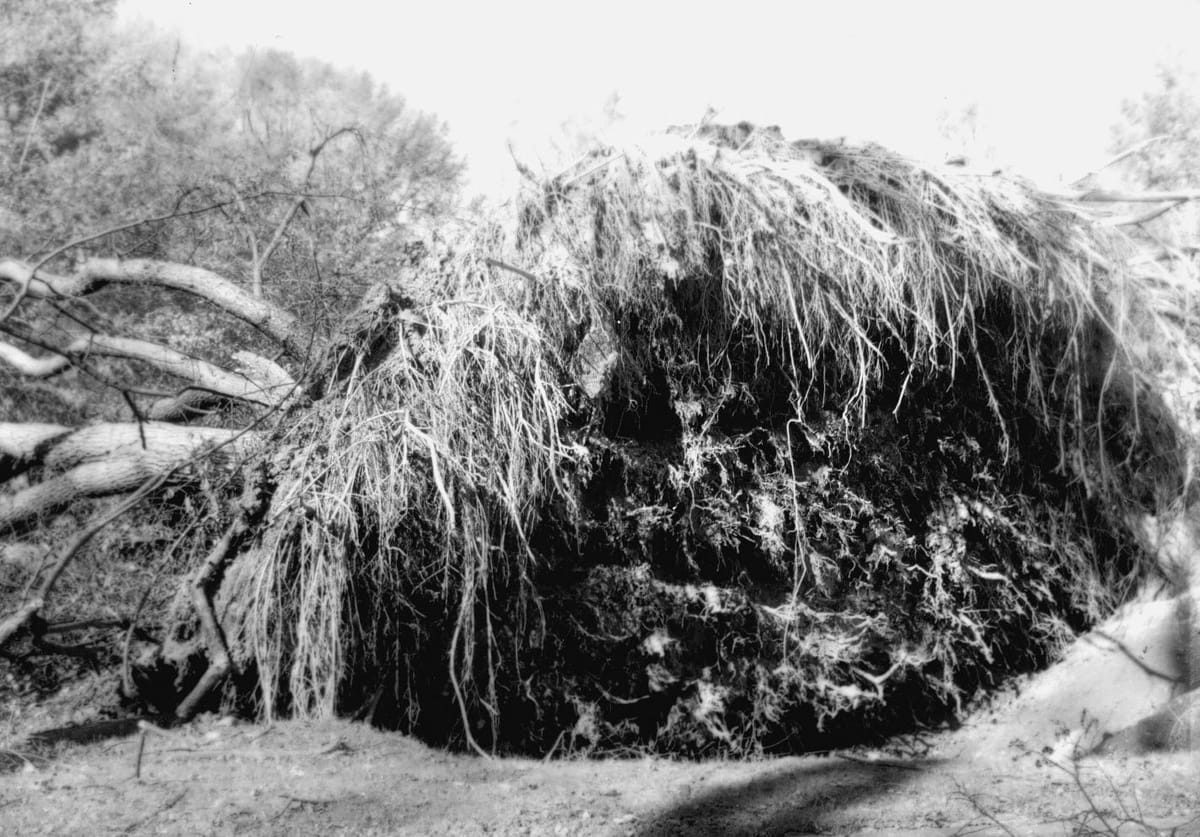I was volunteering at the Millbury Historical Society Museum in late August the weekend before the first hurricane hit. Although Harvey was all over the news that day, I had no intention of researching the Hurricane of 1938 when I was in the museum that morning. As I turned the corner in the hallway on the second floor of the Asa Waters Mansion, however, a giant framed copy of The Millbury Journal from immediately after that storm caught my eye.
The 1938 hurricane is one of the strongest storms to hit New England. The hurricane made landfall on Long Island as a Category 3 and wound its way through New England, flooding the Connecticut River and raining death and destruction as far north as Montpelier, Vermont. Approximately six hundred people died in the Northeast due to the storm, taking seventeen lives in Central Massachusetts. We got through it relatively easy compared to our neighbors; while areas like Barre and Ware needed to evacuate, the most significant issue that faced Worcester County was property damage and fallen trees.
The Millbury Journal’s editorial stated that “it is gratifying that no casualties and serious accidents occurred.” The headline, however, is “HURRICANE WRECKS TOWN,” and the wall of text across the front page of the paper provides an interesting run-down of the impacts of the storm in the town. Much of the story is matter-of-fact: “The roof of the Belfont tower was torn off and landed on South Main Street.” “The Federated Church, St. Brigid’s Church, and The Church of the Assumption stood the storm well.” The bulk of the reporting lists the names of the homes that were “badly damaged.” My favorite section, however, are the two paragraphs dedicated to John Boria’s farm on Cross Street, where a barn blew over and trapped his cattle – the Journal notes that “Mr. Boria called for all the help he could round up,” and, ultimately, thirty-seven cows were saved.
As I watched the news reports from Harvey and Irma over the last few weeks, I was reminded of those reports from 1938. There was one story from Harvey that really impacted me in a way others did not, and it was regarding the “Cajun Navy,” a group of Louisiana natives who, when they learned of the situation in Houston, hooked their boats up to their trucks and made their way to the flooded city of Houston. Just a bunch of people traveling hundreds of miles on their own dime and at great risk to their own safety to help in the search and rescue efforts of people they do not know and have no connection to. For me, it was a beacon of hope and inspiration in a tragic time for Texas and the country.
It’s easy to believe that we have a deficit of kindness in society right now. Any political observer will say that we are in one of the most polarized eras in recent memory, and I firmly believe that the polarization is not centralized at the top. Yes, we have a president who believes it’s appropriate to air his grievances on Twitter, but even in recent months we’ve seen conduct from our own elected officials in Millbury on the unofficial town Facebook groups that made me stop and think about kindness and how we choose to deal with policy disputes in the public sphere. And we’re all guilty of it to some extent, myself included – while the internet has made us more connected, it has also disconnected us from a lot of our actions and how those actions reflect on others and ourselves. In Millbury, we have major pending debates regarding roads and infrastructure, the Shaw School, and a public safety complex. In Sutton, we’ve seen the results with the new school campus, but now we’re approaching a battle over the library, and the town has to find a way to pay for everything they want and need.
This is my first column for the Chronicle. Yes, I intend to hold our public officials task and focus a critical eye on town operations in the future, but I hope that the kindness I want for our communities comes through as well. In small towns, we are not going to be able to solve our problems while putting our fellow townspeople through the wringer. We saw the best of Millbury in 1938; as the Journal reported in response to the Hurricane, “Millbury citizens have put their shoulder to the wheel and are doing a noble job.” Millbury experienced multiple devastating home fires this past summer, and within hours people were organizing fundraising and donation drives for the impacted families. Just last week, someone tore up a Millbury playing field with their truck, and a landscaping company came through and donated repairs. This is what small towns are like and what small towns do, and it was a great reminder as to why my family lives here.
We’re all in this together, and the only way we can make the tough choices necessary to keep moving our towns forward is by working with each other. Let’s do so the best way we know how.

Member discussion: